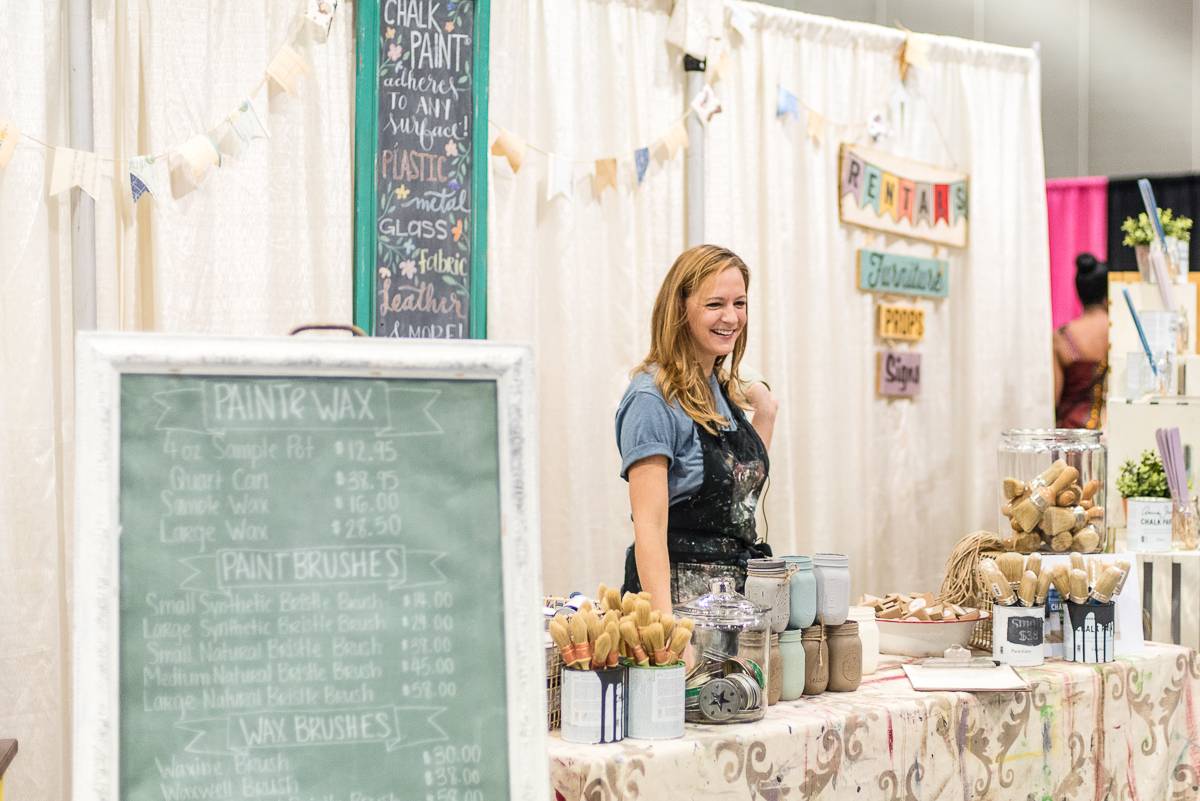Recently, I was asked to submit a questionnaire for Voyage LA publication. It’s been awhile since I’ve been interviewed so grabbed on to this opportunity enthusiastically. Interviews have a way of delving into the details of the business that I rarely write about or even discuss. So, I thought I’d share the questions and my answers to what ended up by a very lengthy interview. Enjoy!
[hr]
Tell us about how you got started.
I’m a collector of fine furniture and for years, I would get a thrill scouting yard sales for high end quality furniture for pennies. I took up my love for interior design and furniture refinishing and started flipping furniture on craigslist; quite successfully in fact. This was before mainstream furniture refinishing for resale was hugely popular…over ten years ago. I could get solid wood, 1930’s French provincial or colonial Americana style pieces for $5 and $10 each! As my online business (and hobby) grew, I began running out of work space at the house and began exploring other opportunities. By complete happenstance, I inquired about a small storefront that became available in Downtown Glendora. I had already looked at some warehouse space and was shocked at the cost, the insurance requirements and the relatively isolated locations. To my surprise, the retail space in the quaint Glendora Village was comparable in price albeit a much smaller unit of space. Weighing my options, I considered that I’m young, a woman with little kids…the thought of coordinating in person sales in the early evening in the dark alley of an isolated warehouse just didn’t sit well with me. And, having a retail location not only provided the storage I needed for my furniture, it allowed me to expand the types of items that I sold, had built-in opportunity for added business and gave me a space to stage and photograph my work. I decided to go for it. I signed a one year lease, paid up front for the entire year so I wasn’t on the line financially for much more than keeping the lights on.
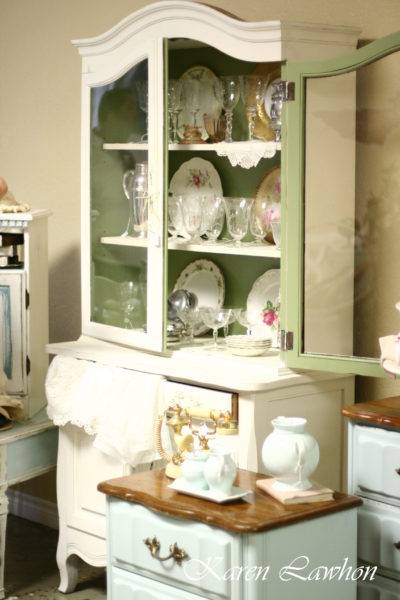
Within a year, the nature of my business completely changed and I was bursting at the seams. I introduced my favorite furniture refinishing paint, Annie Sloan Paint to my repertoire of goods, was able to incorporate furniture painting workshops into my business plan and sell not only finished pieces, but offer custom work, design consultations and refinishing supplies. Fast forward six years later, and I occupy over 2,500 square feet of retail store, with workshop space in the heart of the shop for nearly two dozen eager participants, have expanded my online business to our own website plus Etsy, Amazon and the occasional Craigslist post. Plus, we coordinate and host a huge artisan market every spring called the knot too shabby BAZAAR where we invite our customers and community artisans to sell their handmade and refinished goods in a flea market/farmers market style fair.
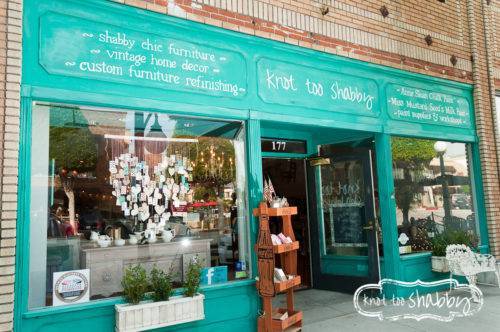
My business has evolved into a place that offers not only traditional retail products but also provides inspiration and design ideas while empowering people to take on their projects and feel the sweet satisfaction of DIY. It’s also a shop that has provided employment to aspiring business owners, handmade artisans and community members. I take great pride in our place in the community, and am eager to find ways to give back be it through educational programs at the elementary and middle schools, supporting academic programs through financial contributions or offering gift certificates, workshop participation and product to Christian groups and non-profit organizations. We are so much more now than I could have ever imagined ten years ago and less than what we will be years from now. The journey is so much more rewarding than the destination. I’m pretty sure someone famous said that.
Has it been a smooth road? If not, what were some of the struggles along the way?
Of course not! In fact, I often joke that had I known the hoops I would’ve had to jump through to open a retail location, I would’ve NEVER embarked on that journey. Doing a profit/loss statement and cost analysis of the possibility of a retail front was one thing, but I had to overcome a moratorium that had just been put in place against businesses that sold second hand goods. I had already come to an agreement with the landlord and signed an intent to lease, but when I went to apply for my business license it was rejected. I felt like a little girl addressing a industry dominated by 50 something year old men who did not understand the nature of my business and how it would enhance the community, and more specifically the Glendora Village (although no one ever said it, I believe they thought I would be just a cheap thrift store…and no one wants a thrift store with yard sale junk in the heart of their downtown).
However, the beauty of these overwhelming challenges, is that people I didn’t even know started coming out of the woodwork in my defense! I had members of the local Business Improvement District come to my aid and lobby on my behalf to City Council Members and influential City Administrators. One of the local lawyers offered me legal advice and representation and helped me draft a defense statement to submit to city officials. The building landlord pulled together information on my behalf and used his connections to help better communicate the nature of the business. And, the City Mayor personally met with me to better understand what exactly I was planning. Keep in mind, that at the time the notion of a shop that sold predominately refinished furniture was entirely new (I had scoured So. Cal to do research and development at stores with a similar business model to mine and they simply didn’t exist…at least not locally). After appearing at a City Council meeting as well as a Planning Commission meeting, I was finally given the green light to proceed…some months later.
I could’ve easily thrown in the towel but I got to the point where I refused to allow a bunch of officials who refused to understand the nature of my business get the better of me and dictate how or where I could grow. So, I stuck with the process and here I am.
As far as other struggles, I could go on and on…misinterpreted customer expectations, financial pitfalls, tax inquiries, etc. But, struggles provide opportunities for growth and learning. Every struggle we’ve encountered, we’ve turned around to improve the business operations. So, I could argue that I welcome struggle because that is when we improve.
Tell us about your business/company. What do you do, what do you specialize in, what are you known for, etc. What are you most proud of as a company? What sets you apart from others?
Refinished furniture is definitely our specialty. But I would say even that has evolved from a product offered to a service provided. We are experts in how to successfully use Annie Sloan Paint and Miss Mustard Seed’s Milk Paint. While we definitely sell the finished product, our most useful and valued commodity is our knowledge. I often tell customers that we really can accommodate every individual; we have refinished furniture ready to buy; we offer custom work for those that have no interest in doing their own projects but have a piece they want transformed; and we offer all of the supplies and tools to DIY along with the knowledge to do so successfully. In addition to to the furniture refinishing products, we place a high value on handmade, Made in the USA and repurposed products. Meaning, 90% off tangible goods is either made locally within our community by artisans, Made in the greater USA or made from up-cycled materials (reclaimed lumber, vintage materials, etc…including Annie Sloan Paint, which is made in the USA and distributed by a small, family owned business).
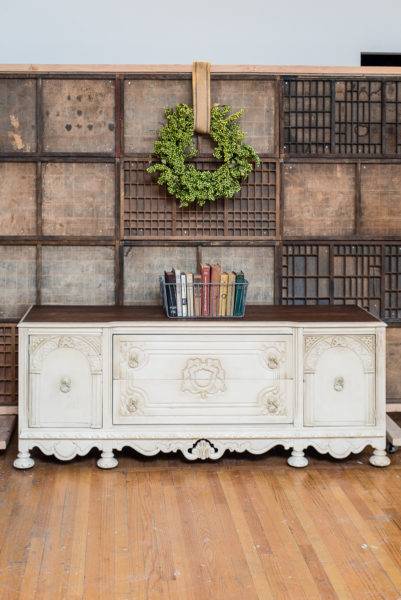
I am most proud of my team of employees. It’s not a large team by any means, but it is a group of people who have been with me for years. Some, for almost as long as we’ve been in business (six years). I’m not a people person…at all. I tend to be a group challenger, which, has served me well in business but can put a strain on relationships. But, I have been extremely intentional in my relationship with the girls who work her, tapping into their talents and providing a place for their own business initiatives to shine and grow. When they decide to move on from knot too shabby, I want them to be better because of it and that means challenging and empowering them to be a part of the business and to participate in the growth initiatives. For me, that means exercising the line between letting go of control while overseeing and leading them in the right direction toward our long term goals. And, that is what sets us apart from the others. Their loyalty to knot too shabby makes them exceptional employees and their ability to see beyond the immediate sale indicates that they are trustworthy in the eye of the consumer. Customer service is equal to none, no matter who you speak with, when you come in and what you are looking for; I promise you will feel cherished, empowered and capable.

Do you feel like your city is a good place for businesses like yours? If someone was just starting out, would you recommend them starting out here? If not, what can our city do to improve?
Glendora is notorious for being an incredibly difficult city to open a business in. Talk to any number of businesses on the street and more than half will have a story, not too dissimilar from my own. That being said, I wouldn’t consider doing business anywhere else (I opened a second location in Monrovia almost three years ago but closed it after two years in business).
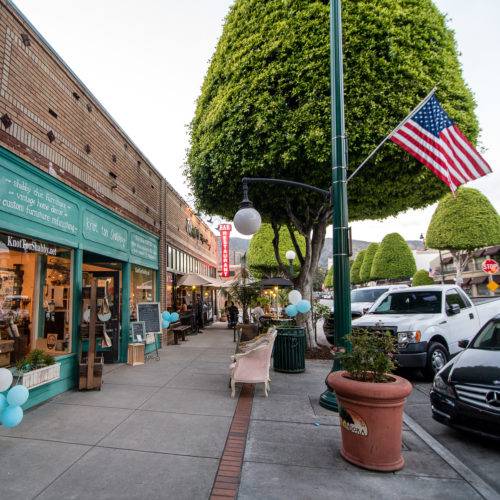
My shop is about more than business. I truly see it as a part of a larger community. It just so happens that that community happens to be the city that I reside in, the city where my kids go to school, the city where my husband works, where my parents live and work, where my church is, where my friends are…you get the point? I am HUGELY invested in this community and you can sure as heck bet that my business is a representation of the type of community that I want to live in; one that supports locally made, nurtures relationships and is involved beyond the walls of the store.
That doesn’t come without its challenges, though. I think the larger community would agree that having more discretion into they types of businesses that are allowed to open in the Village would allow for a culture of greater community involvement (for example, there is a predominant number of service oriented businesses like real estate and escrow offices, salons, etc. as compared to restaurants and retailers). All that aside, Downtown Glendora has a charm to it that is unlike any other city in the area complete with gum drop shaped trees that line the streets that are fully lit for Christmas and cheesy music that plays out speakers that line up Glendora Ave.

